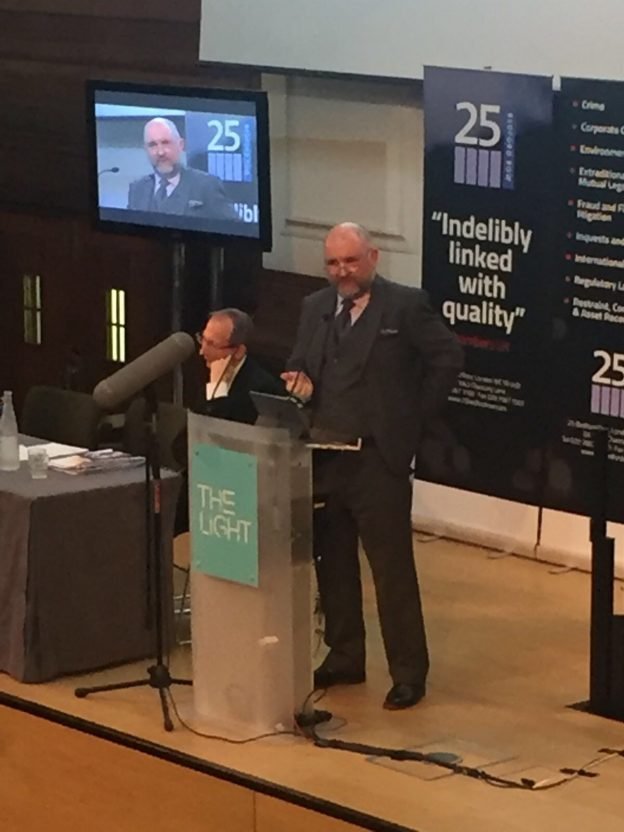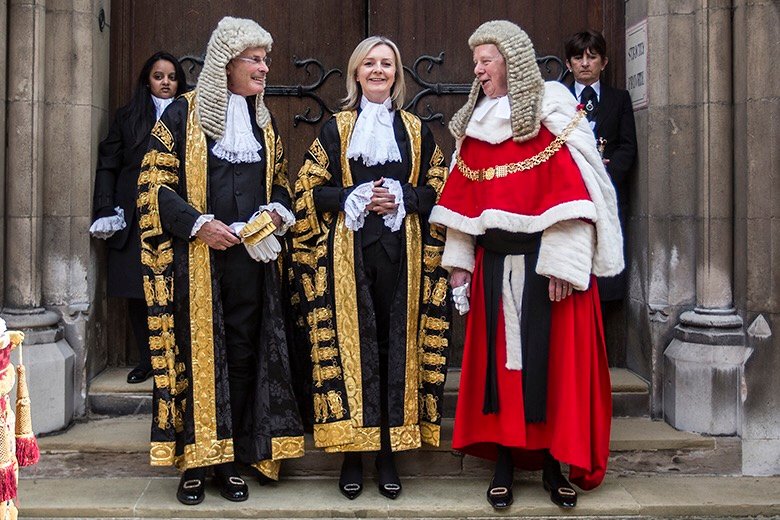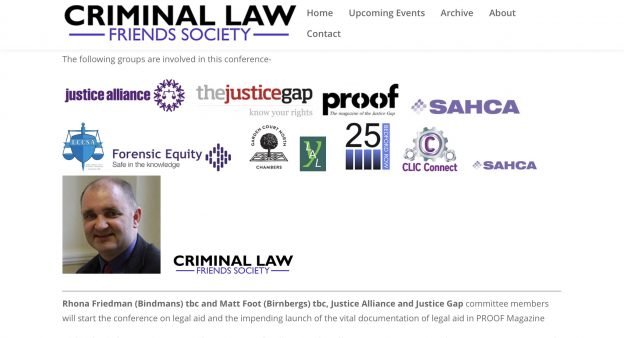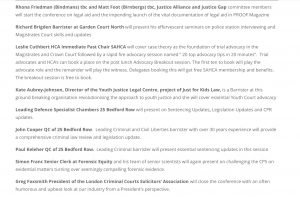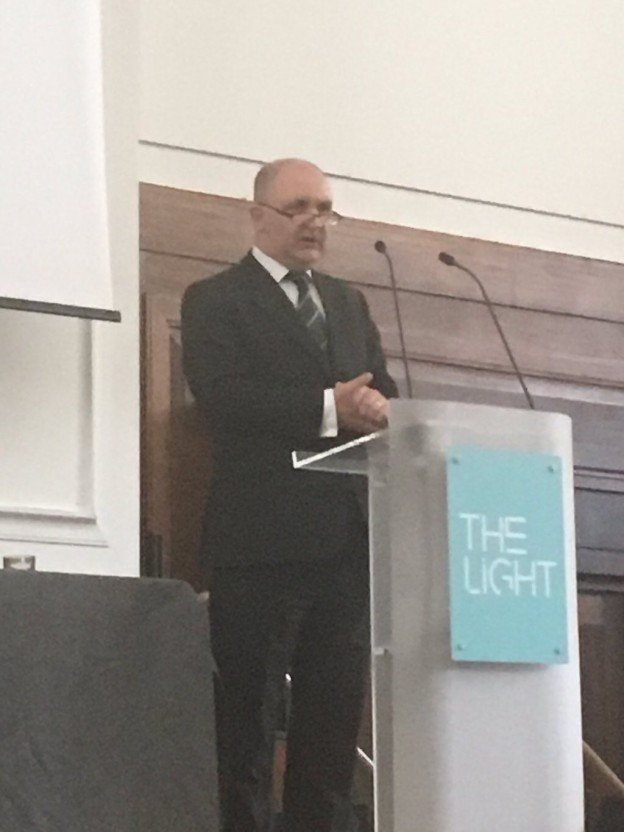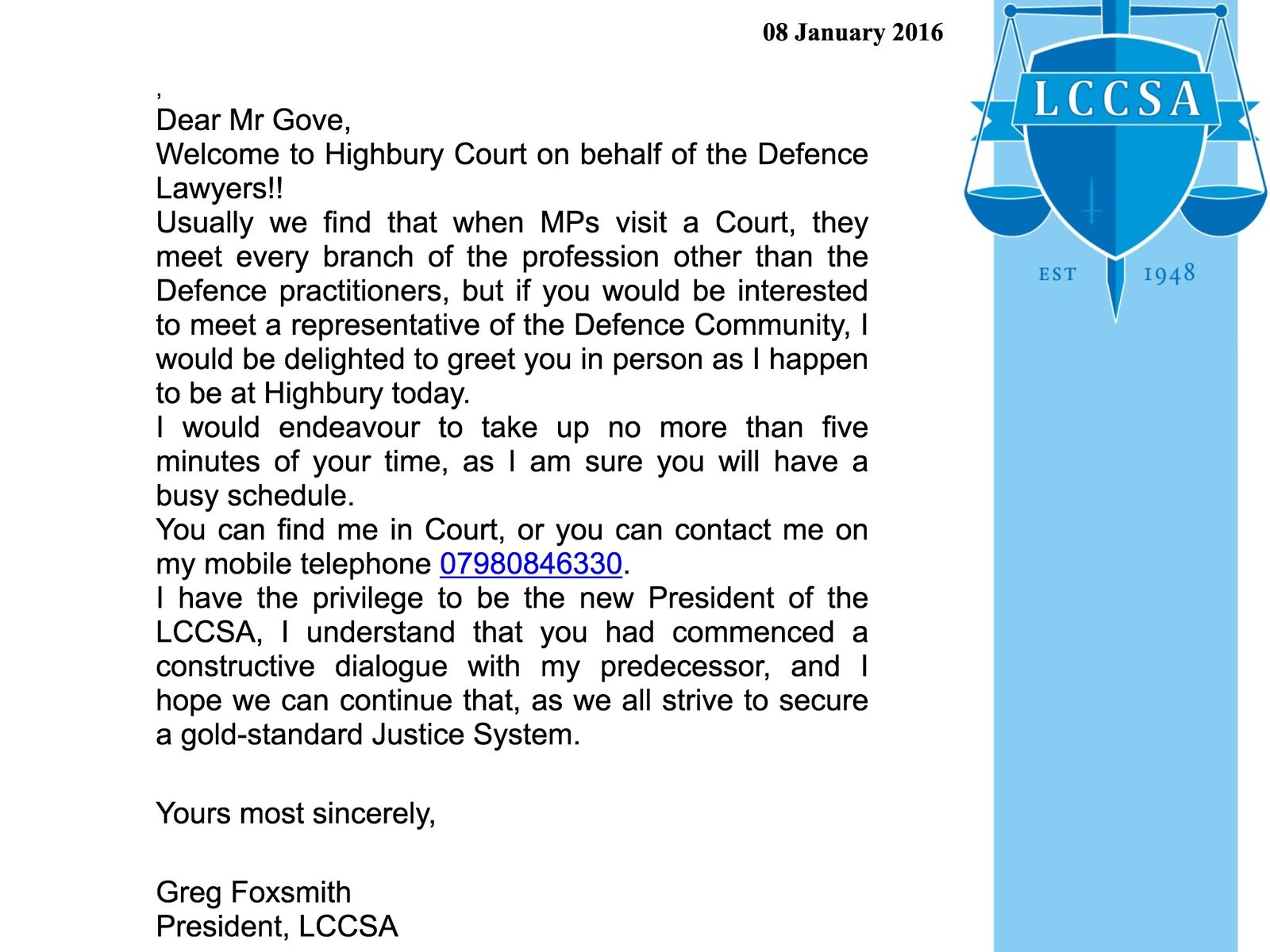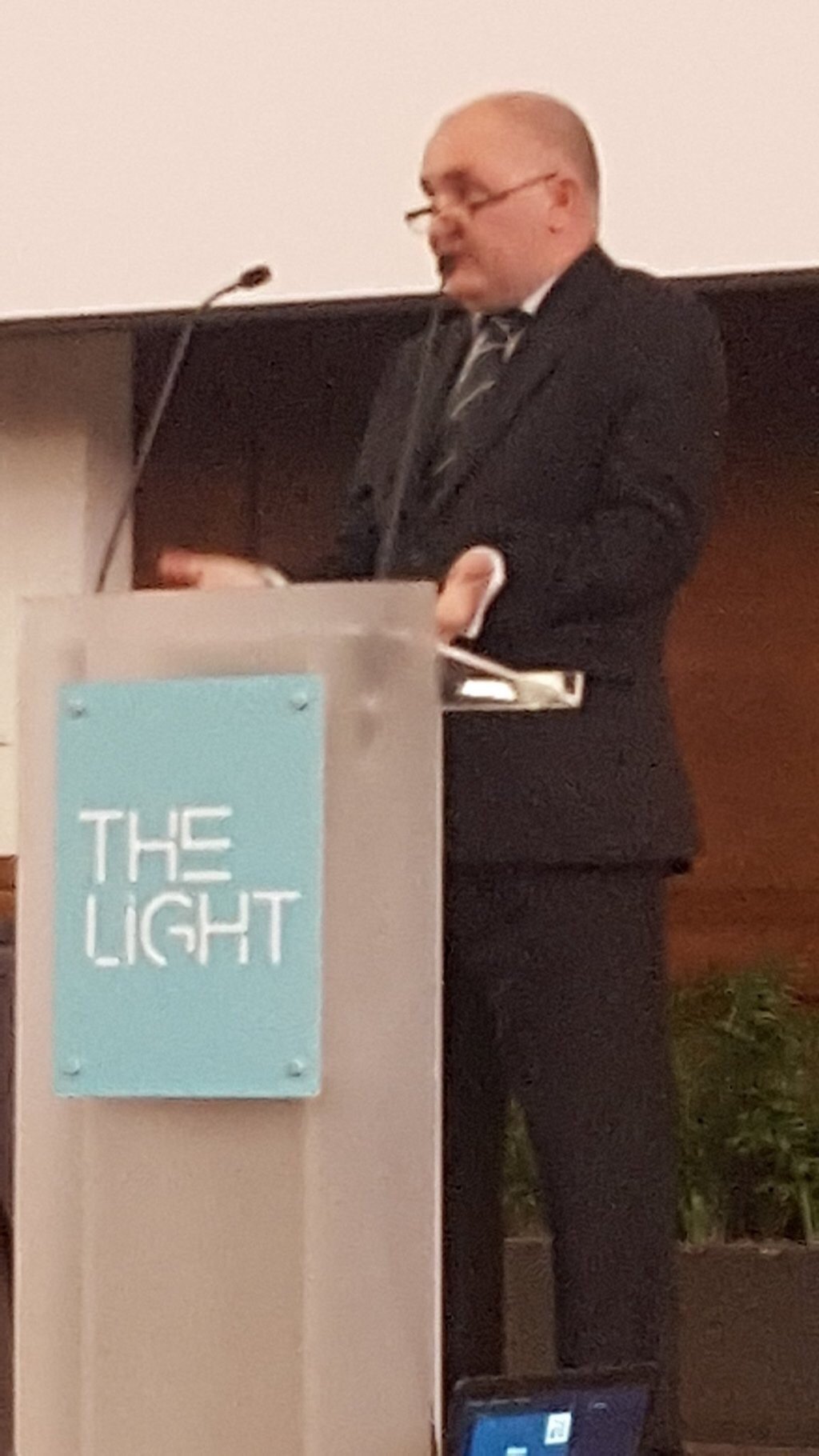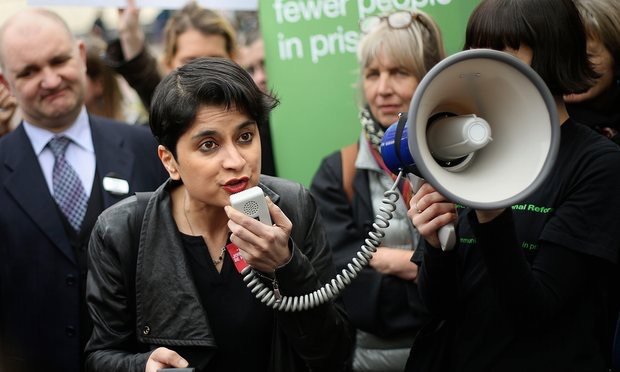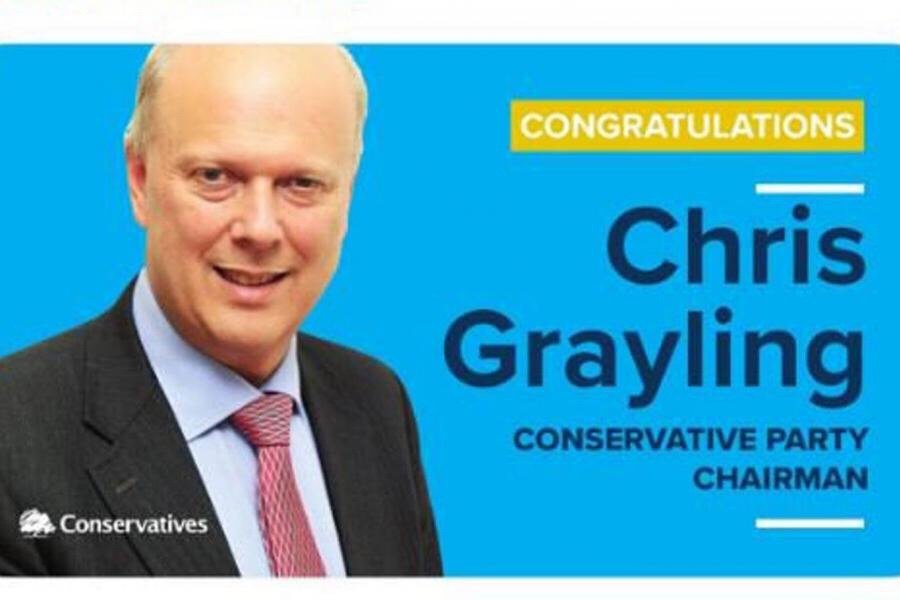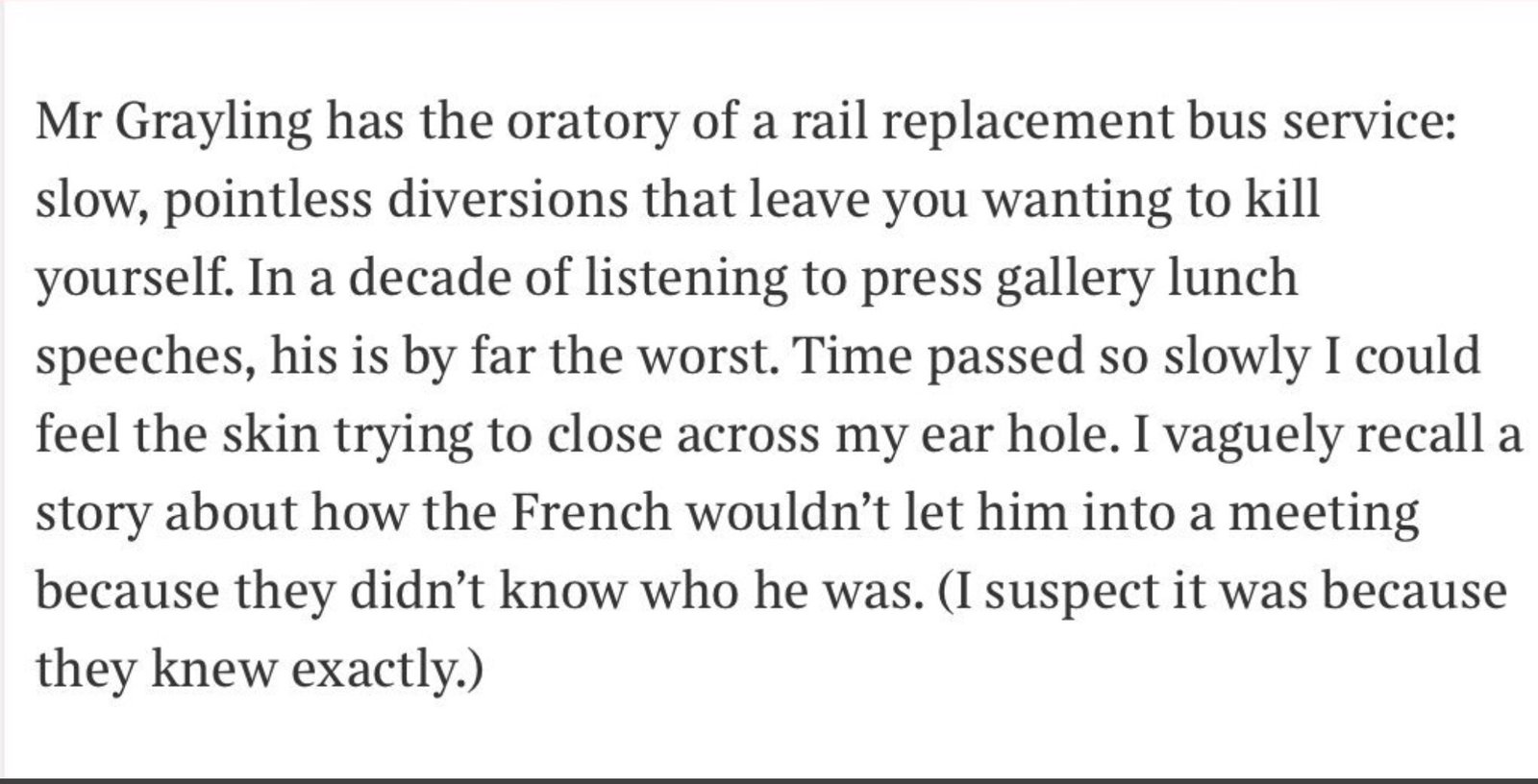This is an edited version of the guest speech given by Matt Foot at the LCCSA AGM 14/11/21

I am very honoured to be invited to speak at the annual meeting of the British Virgin Islands Lawyers. And thank you for the £700k. Oh Sorry -wrong speech!
I am sorry to raise this after you have just eaten but we need to talk about Priti Patel….
Last year she reached the nadir in front of her Party conference when she attacked the ‘do-gooder lefty lawyers’ trying to defend migrants. Patel said the legal aid ‘activist lawyers’ were ‘defending the indefensible’ (1)
So vitriolic was she that a legal aid lawyer was attacked in his office by someone whipped up by her rhetoric, for which she had no regrets and told us ‘to get back to work’. (2)
It’s difficult to work out where this vitriol comes from, how can someone so lack empathy. I think I’ve finally struck on why it is she is so bitter….
I came to this realisation when we saw her at her happiest with a massive smile wandering around a back alley donning a police jacket on a police raid – she never looked so happy. On her lapel it said “Home Secretary” but she obviously always wanted to be… a copper!

Certainly there is no stopping Patel’s adoration for the police – her police bill would only allow protests that were silent and did not “cause unease”
So in love with the police is she that she introduced, as part of the Bill, the idea of a police covenant. As they ‘deserve special recognition’ because ‘they will always have the support of the nation’. Making it ‘a statutory duty to do more to support the police’. This would place a requirement on her to report annually to Parliament on progress with the covenant.
To help her out I’ve written next year’s annual report for her, in recognition of some of the achievements of the police in the last year:
Annual Report on the Police 2020-2021 (as compiled by Matt Foot)
1 Racism
On racism the police are maintaining a higher stop and search rate of black people than was the case at the time of the McPherson report, and particularly so under the covid rules.
This year a former probationary officer has been convicted of being a member of the neo-nazi organisation, National Action.
And in another first, the bodies of two murdered black sisters, Nicole Smallman and Bibaa Henry were photographed by police and passed round a WhatsApp group for their entertainment.
2 Sexism
Infamously, serving police officer, Wayne Couzens, elevated to the diplomatic corp and assisted by deployment and misuse of Patel’s new covid powers, kidnapped Sarah Everard, and then went on to rape and murder her.
3 Policing Protest
When women came out to peacefully show their respects to Sarah Everard a number of (mainly male) officers handcuffed them and manhandled them to the ground.
4 Policing the police
The police have consistently failed women who make accusations against officers of domestic violence as evidenced by Alexandra Heal’s ground-breaking work for the Bureau for Journalism, which I am proud to say won the Paul Foot award for campaigning journalism. Heal identified 700 reports against police officers for domestic abuse and that those allegations were taken less seriously than other complaints.
5 Police Corruption
This year the Metropolitan Police have been recognised as institutionally corrupt in the Daniel Morgan Panel Report. Finally, after his brother Alastair Morgan has been campaigning for the truth for 34 years.
It’s an annual report that shows that more than ever we need to have strong legal aid lawyers to defend people from an institutionally sexist, racist and corrupt police.
It’s clear that despite this report Patel will blindly continue to give special favour to the police and in so doing she will be ‘defending the indefensible’.
LCCSA -defending, Campaigning
However, we in the LCCSA have a strong history of campaigning, including a few years ago against another zealot, Mr Grayling – his affliction when Justice Secretary was asset stripping, privatising anything that he could – legal aid; probation; prisons; -anything he could he would try and sell.
We feared that an underfunded, privatised probation service would be catastrophic. The proved to be true and the probation service has recently been taken back into public hands.
Let us not forget 8 years ago – individuals, firms and lawyers associations led by the LCCSA joined together, uniting to campaign for Justice, demonstrating outside parliament, (5) and we successfully stopped competitive tendering, the “two tier” system, and staved off a further proposed cut.
That was eight years go. I know looking round we are getting older and more grey haired and I was thinking “where can we draw inspiration to defend legal aid again?” I want to look at what the do-gooder lawyers have been up to over the last year. It’s quite a contrast with the police!
I now want to read the Annual report of London Criminal Courts Solicitors’ Association. I think its impressive.
Annual Report of LCCSA “do-gooders” 2021 (as compiled by Matt Foot)
I have 5 wonderful examples of ‘do-gooder’ solicitors dealing with injustices over the last year, many of which have been hanging around for years:
1 Firstly, for several years all our clients have had the ignominy of having to state their nationality, before their case even starts, as if that was somehow relevant to their reason for being in court. (3) That was until LCCSA committee member, Rhona Friedman and her new firm Commons Law – got together and planned out an evidence based challenge and got rid of this racist practice forever. (4) Thank you to her and her firm.
2 When it comes to protest for several years it’s been very difficult to protest at all without falling foul of the full force of the law on obstruction of the highway. Last year at the Supreme Court there was the case of Ziegler, taken on by Raj Chada and presented by Henry Blaxland, which confirmed important protest rights that can help to protect the environment and to challenge the wrongs in this society. (6)
3 20 years ago sub post masters working hard in local post offices around the country were suddenly prosecuted and convicted for fraud. They weren’t guilty of fraud at all – it was all based on dodgy expert evidence, around the new accounting system called Horizon. Last year ex-president of the LCCSA Paul Harris represented several of those who overturned their convictions in what has been called the greatest miscarriage. He rightly said ‘what had happened was evil’.
4 Nearly 50 years ago – four black people were convicted of an attempted theft and assault at Oval tube station, and they went to prison. Last year they finally had their convictions overturned. Lord Justice Fulford made one of those classic judicial understatements : “It is highly unfortunate that it has taken nearly 50 years to rectify this injustice.”
I recommend to you all on iplayer watching ‘Black Power the British Story’. There you can see William Trew’s story – it is quite clear he was fitted up for his politics, and as he walks out of the Court of Appeal you can see him with his solicitor Jenny Wiltshire, former LCCSA committee member and vice-president. Steve Bird another LCCSA committee member also represented one of the Oval 4. https://www.bbc.co.uk/news/uk-england-london-52022925
5 The last and oldest case of injustice I want to highlight goes back a hundred years – let me take you back to the 1920s. I am perhaps just little bit biased in thinking this is the most important. It involves a footballer who played for arguably the best team in the country and more importantly the best team in Devon. Jack Leslie – a black footballer who played inside left for Plymouth Argyle, was picked for England – then suddenly he was dropped because they hadn’t realised when they picked him that he was black. Former LCCSA president, Greg Foxsmith got together with his best mate Matt Tiller to set up a brilliant campaign. They raised the money for a statue at the best ground in the country, Home Park, and have gone into schools to use Jack’s story in a positive way against the indefensible racism that existed then, and in different ways today. Thank you to Greg. (7)
Going forward the biggest threat for the do gooders to continue dealing with such injustices is the chronic underfunding of the Criminal Justice System.
The hourly rates for criminal defence work have not increased since 1996. Over 25 years. 1996 was when the spice girls released their first single, and even before Jon Blacks first tweet. No other group of workers I believe have had such a cut by governments of both colour.
We don’t know what CLAR is going to do – is it going to make good the recommendations of the All Party Parliamentary Group report this month that we be paid in line with inflation by an independent panel. The CLAR report is imminent. If they don’t increase the rates we will have no choice but to campaign and take action alongside the bar.
I would like to finish on a quote of the Irish socialist Jim Larkin – ‘the great only appear great because we are on our knees. Let us rise’.

NOTES
3 The “Nationality Requirement” https://www.lawgazette.co.uk/law/defendant-nationality-declarations-offensive/5063715.article
4 The end of the Nationality requirement- thanks to Commons https://twitter.com/commonslegal/status/1358732682209996802?s=21
5 Matt too mention to modest, but he was a key figure and final speaker at the 2014 demo
6 Here’s the case ref: Ziegler
7 (Note from Greg:Thanks to Kingsley Napley for backing me and backing the campaign ! ). It’s not too late to get on board- law firms supporting the campaign will get recognition on the statue plinth, and campaign website!
8 Matt also thanked the LCCSA committee in his speech: Firstly we need to thank all the committee for their hard work in keeping this very important association together, particularly Mark Troman and Kerry Hudson who have done so much in a really difficult year when we haven’t even been able to meet together in person. Good luck to nw President Hexham Puri and the committee for the year ahead.
9 How times change… a note on the http://LCCSA AGM dinner from 2015, from 2016, and the Summer Party of 2016
10 And finally….find out more about the LCCSA (and if eligible, how to join) here: https://www.lccsa.org.uk/about/officers/






